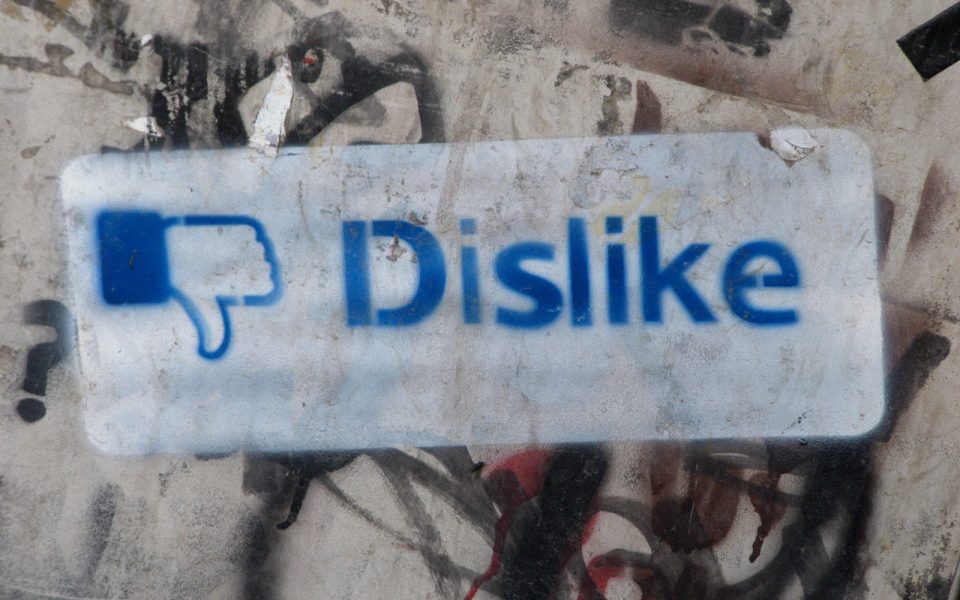Facebook has shut down our newspaper’s page three times since Monday, “for violating the Facebook Terms of Service” according to an anonymous email, likely issued by AI.
This is unusual: Generally, potentially offensive Facebook posts get flagged individually; the page’s owners get a notification about the alert, and there is an appeals process. We know because a year or so back some racists reported our Facebook posts linking to our coverage of white supremacists. In all instances, our posts were restored.
In order for an unceremonious shutdown of a Facebook business page to happen, complaints must come in great numbers, perhaps from different sources but perhaps not — it may be possible for an individual to make enough of a virtual stink to bring down the hammer. It’s all part of Facebook’s mysterious and proprietary algorithm, one that knows when you are in the market for a new pair of shoes, but can’t discern actual, award-winning journalism from Russian propaganda memes.
The irony is particularly delicious.
Without asking anyone, Facebook inserted itself into the online conversation between readers and content creators — that’s us, along with meme creators, TikTok dancers, serial tweeters and the makers of cat videos.
But unlike the cat video folks, who gained access to much wider audiences, for local news the proliferation of Facebook changed the way we interact with our audience. People used to come to a website like ours and hang out for a while, read a few weeks’ worth of stories in one sitting. Some still do. But many — almost half — parachute in to our website from Facebook, Twitter, Reddit and other aggregators, stick around for a story or two and then split.
At the same time, Facebook has raided the marketing budgets of what were once the most loyal clients of the alternative press, giving nothing back to the community in return except more access to content created by people other than Facebook.
Lately, the company has begun a community-journalism initiative, a grant program that “supports people and organizations aiming to build community through local news.” Their largesse did not include Triad City Beat. And the fund is a fraction of what was taken.
Facebook actually charges businesses to access more than 5 percent of their own audiences at one time. That’s what “boost this post” is all about. Think about that for a minute.
And then, seemingly on a whim — but more likely because a small group of keyboard warriors made us their special project for a couple days — they remove us from the public square that we created.
We’re currently wending our way through the AI web that governs Facebook appeals. And probably, by the time this editorial sees print, we will be back up.
Or maybe not. Like so many other things, Facebook has taken that power away from us, too.
Join the First Amendment Society, a membership that goes directly to funding TCB‘s newsroom.
We believe that reporting can save the world.
The TCB First Amendment Society recognizes the vital role of a free, unfettered press with a bundling of local experiences designed to build community, and unique engagements with our newsroom that will help you understand, and shape, local journalism’s critical role in uplifting the people in our cities.
All revenue goes directly into the newsroom as reporters’ salaries and freelance commissions.


Facebook murdered my site by shutting down our page while giving no reason for it. And they didn’t answer the appeal. I know it was reported en masse by racists after I was alerted to a call that was on the notoriously racist site, Gab.
In my case I denounced violence with a photo and Facebook accused me of graphic violence!!! I replied to insults with an insult and now they don’t let me add friends, comment in any group, share news in my pages, nor like anything, and all these for 30 DAYS!!!……. Facebook is very abusive. I really have to say that Facebook system is stupid, very stupid because if they would detect insults in first place nobody would have to reply to them…. but they don’t detect insults … they detect replies to insults!!!! And just punish people who reply to insults, not to the ones who insult in firs place….
I tried to put a note about all these abuses (with references) in wikipedia but a person there deleted my whole section because he considered it “no neutral”… So it seems Wikipedia can’t put negative notes on facebook….. So the only place to centralize and document Facebook abuses is Youtube.
I call the ones that were abused by Facebook to record their screens (with Camtasia Studio), blur the parts with their names (with a callout) and upload it in Youtube.
Otherwise we will be silent victims of Facebook and they don’t listen, they just want to make money…
The fact is that Facebook should learn from its mistakes and fight for human rights in an intelligent manner, because the way they do they just make abuses and against people that usually fight for human rights, which is absurd and illegal.